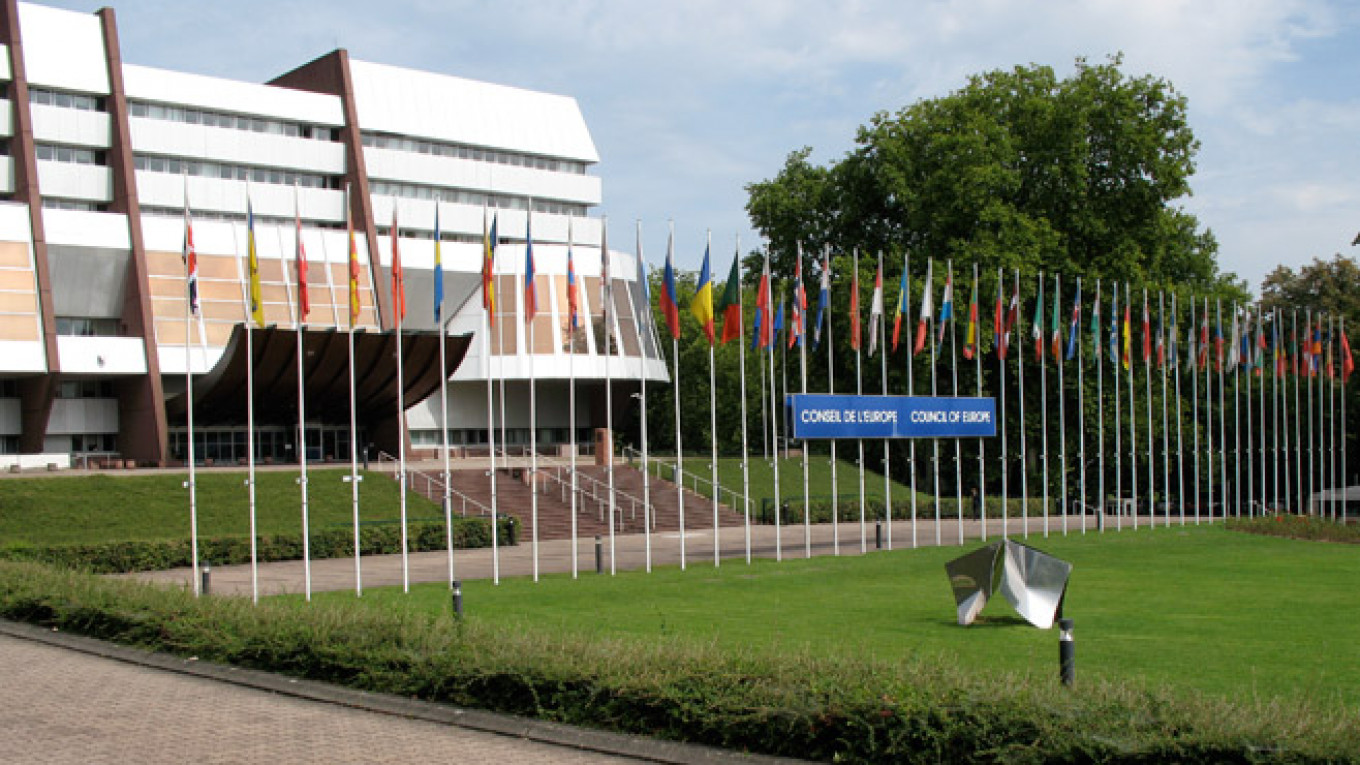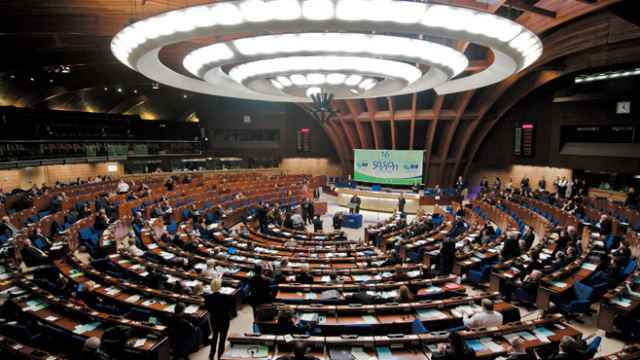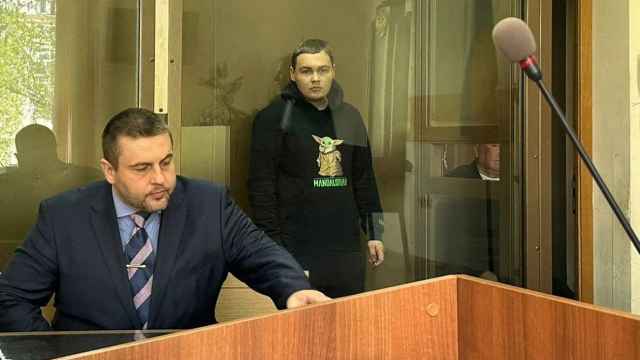As Moscow considers cutting ties with the Council of Europe, much hangs in the balance: from the rights of ordinary Russians, to the future of regional relations, to the fate of the death penalty.
Citing the "role and participation of the Russian Federation in the conflict in eastern Ukraine, as well as [Russia's] continued illegal annexation of Crimea … in violation of the Statute of the Council of Europe," the Parliamentary Assembly of the Council of Europe (PACE) decided last week to renew sanctions against its Russian delegation.
Accordingly, the delegation will be deprived of its PACE voting rights until at least April, when the assembly will reconsider its decision. In the meantime, Russia's membership status has been generally downgraded: No Russian members can be appointed as rapporteurs, observe elections, or represent PACE before the Council of Europe or other bodies until the sanctions are lifted.
State Duma Speaker Sergei Naryshkin, who heads the Russian delegation, reacted swiftly, announcing that Russia would suspend its participation in PACE at least until next year, adding that a complete departure from the Council of Europe could be in the cards for 2016.
A slew of other lawmakers, including the head of the Federation Council, Valentina Matviyenko, followed suit. "If this bacchanalia continues, perhaps we need to consider whether we should stay with PACE and with the Council of Europe in general," she told journalists in comments carried by state news agency RIA Novosti on Saturday.
But not all Russian officials are on board. Alexander Kurmaz — the acting head of the Foreign Ministry's All-European Cooperation Department — said Monday that leaving the Council of Europe would be ill-advised, the Interfax news agency reported.
Renowned octogenarian human rights activist Lyudmila Alexeyeva, who heads up the Moscow Helsinki Group, told Interfax that such a move would send the country back "to the period of the Mongol-Tatar Yoke," a period dating between the 13th and 15th centuries, when Mongol-Tatar feudal lords ruled over lands they conquered from Russia with an iron fist.
What Would a Departure Entail?
Perhaps the most visible organ of the Council of Europe is the the European Court of Human Rights (ECHR), where citizens of member states can stand before an independent judiciary to voice grievances that may have been improperly dealt with at the national level.
Meanwhile, the potential decision to leave the council could jeopardize Russia's moratorium on the death penalty, which has been in place since shortly after Moscow acceded to the Council of Europe in 1996. While capital punishment technically remains codified in Russia, council regulations prohibit member states from imposing it.
Above all, an exit from the Council of Europe would signal Russia's decisive departure from the course of gradual integration with European institutions, a course many Russian leaders have championed since the dawn of the post-Soviet era.
"Politically, I believe a move like this would form a symbolic boundary, distinguishing Russia's relations with Europe from the model that has been in place since the start of the 1990s, which envisaged if not accession to the European Union, then some form of integration, rapprochement, the creation of a unified legal framework," Fyodor Lukyanov, head of Russia's Council on Foreign and Defense Policy, told Interfax.
The fact that this model is obsolete has already become obvious to many, Lukyanov added.
War as the Only Alternative
Karinna Moskalenko, a leading human rights lawyer who won the first-ever public case brought against Russia before the ECHR, said the only alternative to European integration is war, "and not just a cold one."
The Council of Europe is an international organization that promotes human rights, the rule of law and democracy between member states. All of the European states except Belarus, Kazakhstan and the Vatican City count themselves among the council's 47 members.
If Russia leaves the organization, it will drive a wedge into Europe, according to Moskalenko, who herself is a Russian citizen.
"This is the scariest scenario, I don't want this to happen to my children and grandchildren," she told The Moscow Times in a phone interview from Strasbourg.
Among Moskalenko's more high profile clients has been Mikhail Khodorkovsky, a former oil tycoon who for a time was Russia's richest man, before being locked up on charges he claims were politically motivated.
For more than a decade, the ECHR has greatly contributed to the improvement of Russia's domestic legal system, Moskalenko believes. For instance, the number of applications the ECHR receives from Russian claimants has diminished in the past year, largely due to the preventive measures taken by the Russian government.
While in 2013 Russia was still the state from which the highest number of ECHR applications originated, by the end of last year the country went down to the third spot, with Ukraine and Italy taking the lead. Notably, Russia was still number one in terms of the highest number of judgments handed down against it over the course of 2014.
Still, its improved application ranking attests to the success of efforts by the Russian government to transform the domestic legal system, Moskalenko said.
Furthermore, the bulk of Russian cases that do make it to the ECHR are generally brought by ordinary citizens, for whom the opportunity to seek justice in Strasbourg has become a source of empowerment at home. "Look what has happened to the Russian penal system — today administrators and guards know that prisoners are aware of their rights and are prepared to defend them," Moskalenko said.
For instance, after the ECHR ruled in favor of Valery Kalashnikov in 2002, who complained about degrading treatment and the excessive length of his pretrial detention in Russia, many other prisoners used the ruling to defend their rights, she said.
Fate of the Death Penalty
Russia's exit from the Council of Europe would also bring the issue of death penalty back to the table. When PACE first imposed sanctions against Russia last April, Federation Council member Igor Morozov suggested lifting the moratorium that has been in place for nearly two decades.
The reinstatement of the death penalty was supported by 52 percent of the Russian population, independent pollster the Levada Center revealed last July. The 2014 results represented a 2 percent decrease from 2013, when the Moscow-based pollster conducted a similar survey. The polls were conducted among 1,600 respondents with the margin of error not exceeding 3.4. percent.
Although Russia's Constitutional Court ruled in 2009 that capital punishment cannot legally be brought back into practice, the question of its potential restoration has frequently been used as fodder for politicians to attract immediate popular support.
The European Ideal
Visitors to Georgia or Ukraine are inundated with reminders of Europe. The flag used by the European Union and the Council of Europe hangs from every government building, serving as a constant reminder of the desires of Kiev and Tbilisi to integrate with the EU. So far, both are only members of the council.
With Russia having pitted itself against the West on an increasing number of issues in recent years, its participation in the Council of Europe had become the primary remaining avenue for communications with Europe, experts said.
Russia, along with Britain, Germany, Italy and France, is one of the key contributors to the council's budget, having allocated more than 32.2 million euros in 2014.
Precedent for the departure of members from the council remains thin. So far, only Greece — in 1969, during its period of military dictatorship — has opted to leave the Council of Europe. Its membership was restored after the dictatorship toppled in 1974.
Contact the author at i.nechepurenko@imedia.ru
A Message from The Moscow Times:
Dear readers,
We are facing unprecedented challenges. Russia's Prosecutor General's Office has designated The Moscow Times as an "undesirable" organization, criminalizing our work and putting our staff at risk of prosecution. This follows our earlier unjust labeling as a "foreign agent."
These actions are direct attempts to silence independent journalism in Russia. The authorities claim our work "discredits the decisions of the Russian leadership." We see things differently: we strive to provide accurate, unbiased reporting on Russia.
We, the journalists of The Moscow Times, refuse to be silenced. But to continue our work, we need your help.
Your support, no matter how small, makes a world of difference. If you can, please support us monthly starting from just $2. It's quick to set up, and every contribution makes a significant impact.
By supporting The Moscow Times, you're defending open, independent journalism in the face of repression. Thank you for standing with us.
Remind me later.






